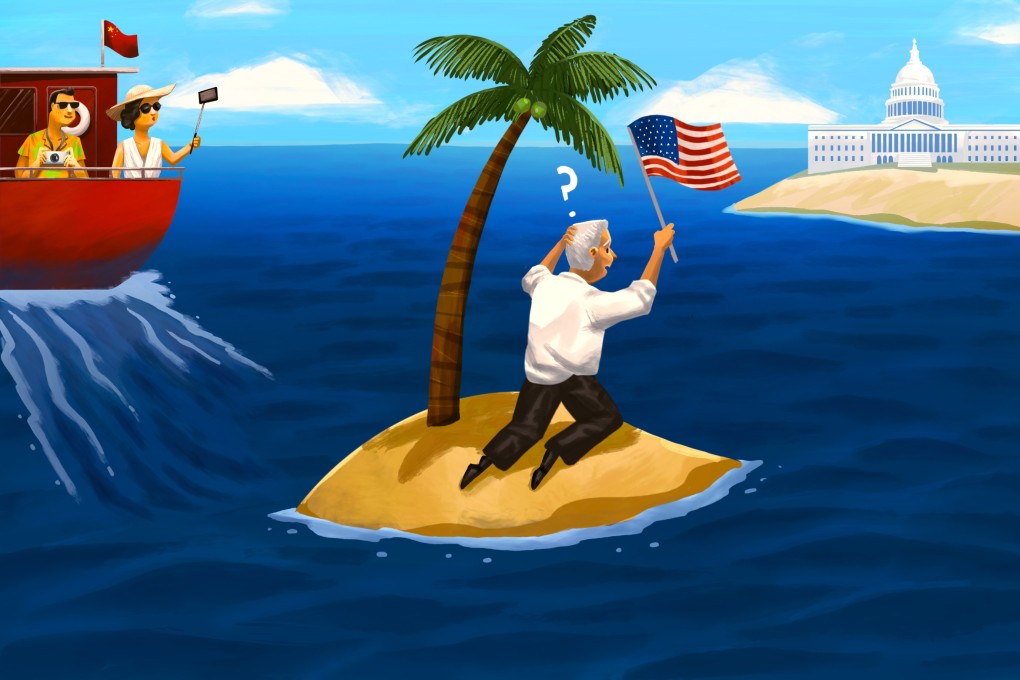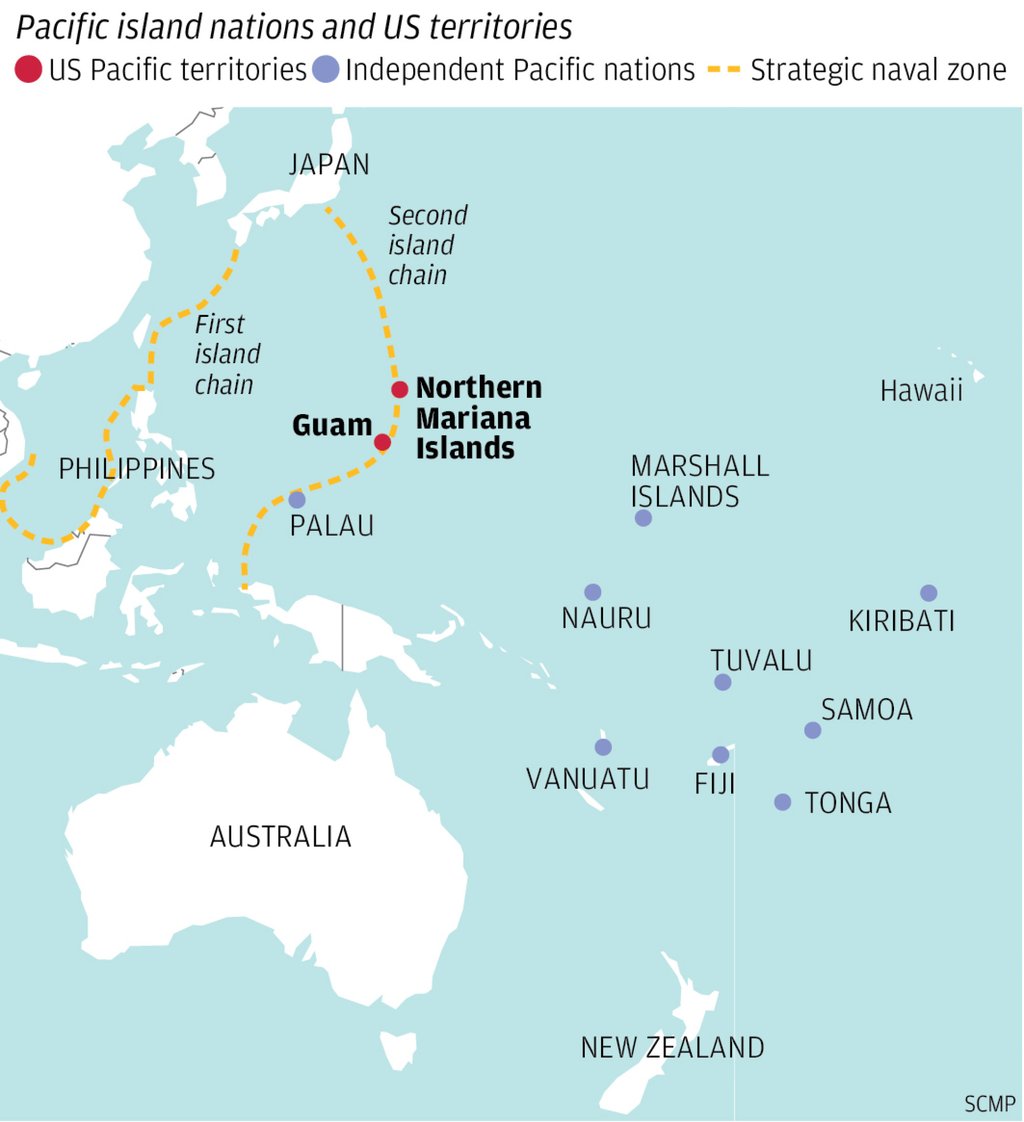Leader of a US Pacific territory tells of ‘lonely’ pivot away from China amid a dire economic crunch
- Long tied to Beijing for tourism and gambling income, the Northern Mariana Islands need more aid from Washington, says governor
- Archipelago of fewer than 50,000 inhabitants is home to military bases vital to US defence strategy as China raises its profile

“Sometimes I feel like John the Baptist out in the desert,” Arnold Palacios, the governor of the Commonwealth of the Northern Mariana Islands, declared recently in Washington.
Speaking not at a church service but at a think-tank discussion during a recent visit to the US capital, Palacios put his pivot away from China in doleful terms that underscore the dire economic times that he is trying to manage back home.
Drawing a parallel with the biblical prophet, the governor of the US territory added: “Seriously … that is how lonely it has been for the past nine to 10 months.”

While the Northern Mariana Islands has a population of fewer than 50,000, it is home to American military bases vital to Washington’s strategic defence posture as Beijing raises its profile in the region.
The archipelago is unique for being the only place administered by the US that allows Chinese nationals to enter without a visa for up to 14 days.